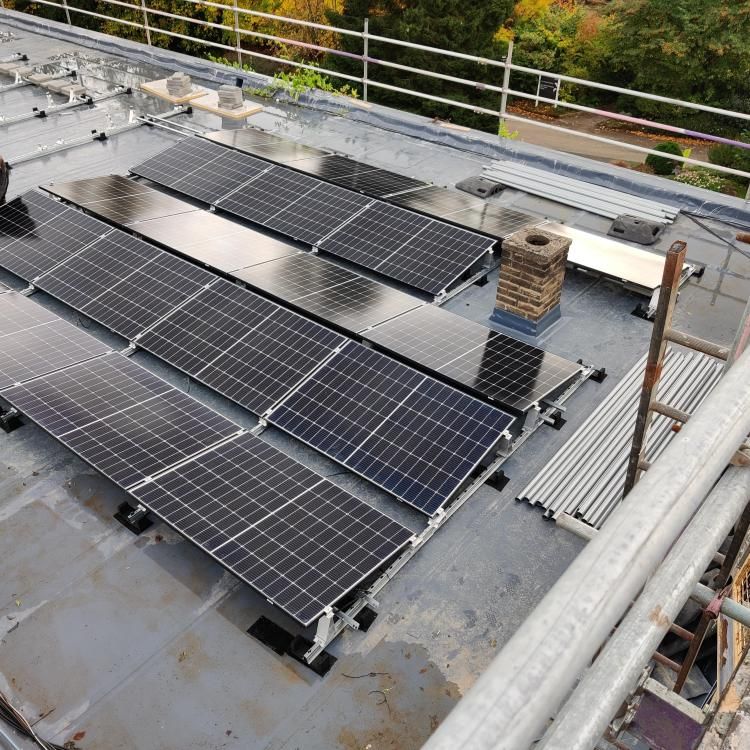Derby College implement robust carbon action plan following £3.6m grant

Project overview
Derby College have been awarded £3.6 million through Phase 2 of the Public Sector Decarbonisation Scheme (PSDS) to improve the efficiency and life span of existing buildings while reducing its carbon emissions.
The college was inspired to update its heating system at the Broomfield Hall campus due to the impracticality of operating its aging coal-fired boilers and their detrimental impact on the environment.
The funding, provided by the Department of Business, Energy, and Industrial Strategy (BEIS) and delivered by Salix, has enabled the college to update these boilers with six air source and three water source heat pumps respectively.
This project will provide new centralised plant and distribution pipework to enable 3 of these buildings to be provided with low carbon heating and hot water. The project will include building fabric upgrades, controls and thermal storage to reduce energy demands from the site.

Technical breakdown
- Three water source heat pumps
- Six air source heat pumps
- 101 solar panels
- LED lighting in 3 buildings and external finder lights
Our work is all about contributing to Derby College’s profile as the college of choice. The quality of our estate, and the efficiency with which it is operated, can have real and measurable social, economic, and educational impact.
Technologies
Heat pumps involve heat transfer via a refrigeration circuit which, unlike fossil-fuel run boilers, does not utilise combustion nor cause the release of carbon dioxide into the atmosphere. New distribution pipework and energy saving materials have also been installed by the college.
Installation progressed in August 2021 and was completed in March 2022, providing the college with an opportunity to improve other elements such as building fabrics with the installation of new roofing, thermal void insulation and LED lighting. Lighting upgrades have been made to the Edale building, the main hall and the new plant room while all external way finder lights have been updated to LED also.
To complement these works, solar panels with a 40 Kwh output were also introduced. These upgrades will reduce the environmental impact of heating and hot water provision.
Future plans
The project will be a key part of incorporating the teaching of sustainability for change management across all areas of the college curriculum in the future.
Its robust action plan encompasses resource conservation, recycling, pollution reduction, waste elimination and low carbon travel. Future plans include the consideration of further renewable installations, such as wind turbines and energy saving fabric and material works to the main buildings on campus.


